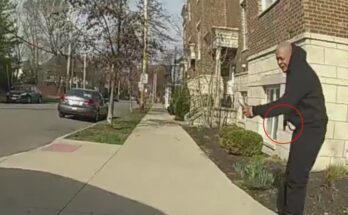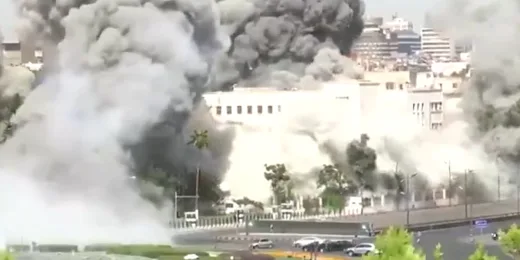
Israel launched a series of devastating strikes on Syria’s capital Damascus Wednesday, dramatically escalating military intervention in the war-torn nation. The attacks targeted multiple government facilities, including the Ministry of Defense and areas near the presidential palace, sending shockwaves through the Syrian government and international community.
The strikes killed at least three people and injured 34 others, marking one of the deadliest Israeli attacks on Syrian government infrastructure in recent months. Syrian television footage captured the Ministry of Defense building being hit during a live broadcast, forcing the anchor to take cover as explosions rocked the capital.
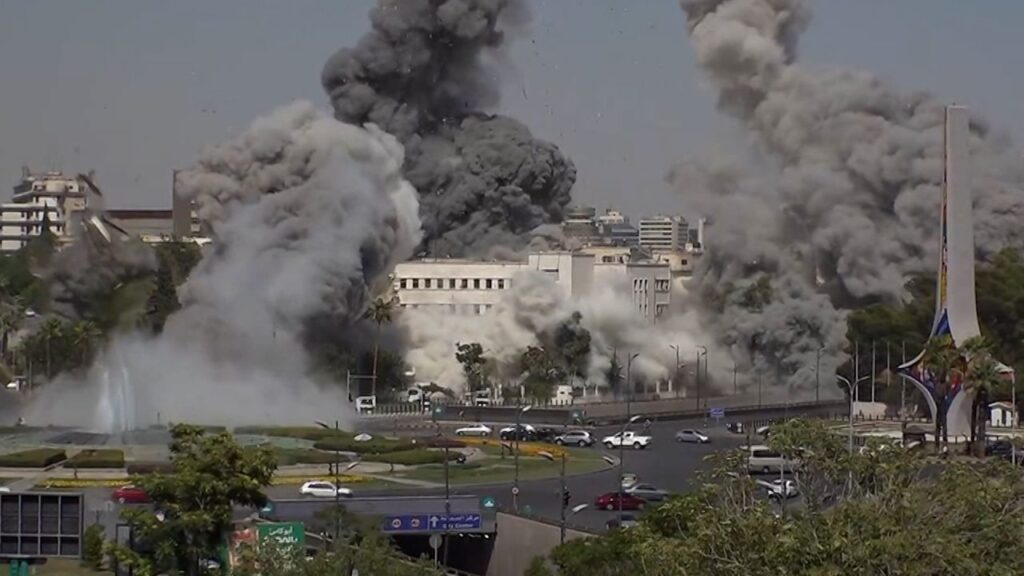
Israel‘s Defense Minister shared the dramatic footage, describing the attacks as the beginning of painful blows against Syrian government forces. The strikes represent a significant escalation in Israel’s military campaign, which has intensified since the fall of the Assad regime last December.
The timing of these attacks coincides with ongoing clashes between Syrian government forces and Druze militias in the southern city of Suwayda, creating a complex multi-front crisis that threatens regional stability. Israel claims its strikes aim to protect the Druze minority, though critics suggest broader political motivations.
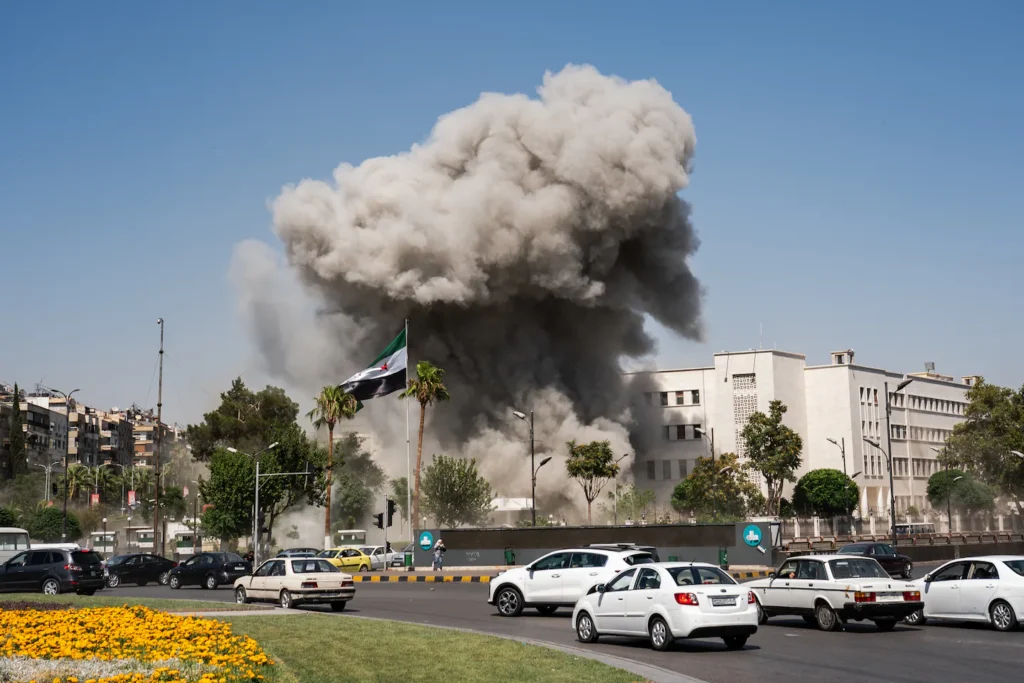
Druze community fights for survival
The Druze, an Arab religious minority of approximately one million people, have found themselves at the center of violent confrontations with Syrian government loyalists. This ancient community, which practices an offshoot of Islam that permits no converts and no intermarriage, faces mounting pressure from Sunni extremist forces.
Violence erupted over the weekend between Druze forces and Bedouin tribes in Suwayda, prompting Syrian government intervention that has only intensified the conflict. The Druze community, concentrated in three main provinces near the Israeli-occupied Golan Heights, forms a majority in the Suwayda province where the fiercest fighting has occurred.
The situation deteriorated rapidly as electricity was cut off, mobile service became extremely weak, and internet connectivity nearly collapsed. Water supplies were also disrupted, creating humanitarian concerns for civilians caught in the crossfire between competing armed groups.
Local residents described the situation as dire, with basic services failing and communication networks breaking down. The infrastructure collapse has made it difficult for families to maintain contact with relatives and for humanitarian organizations to assess the full extent of the crisis.
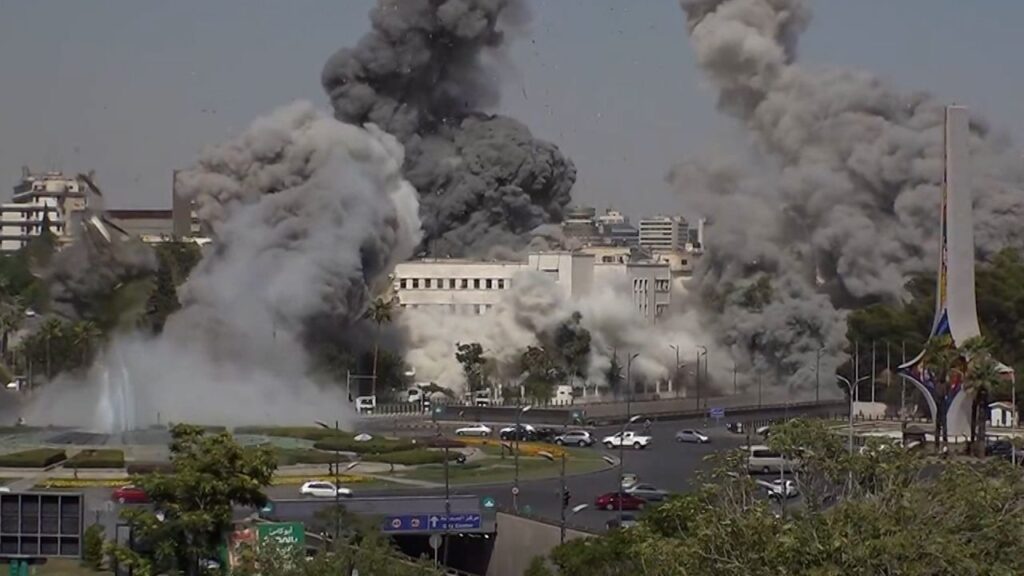
Ceasefire talks collapse amid divisions
Syrian government officials announced a new ceasefire agreement Wednesday, but the deal immediately faced rejection from key Druze leaders, highlighting deep divisions within the minority community. The proposed ceasefire called for a complete halt to military operations and the formation of a monitoring committee with Druze leaders.
One spiritual leader representing a Druze faction confirmed reaching an agreement for an immediate halt to all military operations and de-escalation from all sides. The deal would have required Syrian army forces to return to their barracks while allowing Druze community members to lead security in the province.
However, a prominent Druze figure who had requested international protection rejected the ceasefire and called on supporters to continue fighting. This split among Druze leadership demonstrates the complexity of the situation and the challenges facing any peaceful resolution.
The collapse of ceasefire talks occurred as clashes continued into Wednesday, with reports of ongoing violence despite diplomatic efforts. An earlier ceasefire had also collapsed within hours, g that underlying tensions remain unresolved.
Regional implications escalate
The conflict has drawn in multiple regional powers, with Israel positioning itself as a protector of the Druze minority while pursuing broader strategic objectives. Israeli Prime Minister Benjamin Netanyahu has previously characterized Syria’s new government as an extremist Islamic regime that poses a threat to Israeli security.
Israel’s Foreign Minister emphasized the country’s desire to maintain the status quo in southern Syria near the Israeli border and prevent the emergence of new threats. This position reflects Israel’s broader concerns about the changing dynamics in Syria following the Assad regime’s fall.
More than 20,000 Druze also live in the Israeli-occupied Golan Heights, creating cross-border connections that complicate the regional situation. Videos circulating on social media showed people carrying Druze flags crossing from the Golan Heights into Syria to support their community in the ongoing clashes.
Netanyahu specifically addressed the Druze community in Israel and the Golan Heights, urging them not to cross the border and reminding them of their Israeli citizenship. This appeal highlights the complex loyalties and identities that span international boundaries in the region.
International pressure mounts
The United States expressed deep concern about the escalating violence, with Secretary of State Marco Rubio confirming ongoing discussions with all relevant parties to bring the situation to a conclusion. The American response reflects broader international anxiety about regional stability.
United Nations Secretary-General António Guterres condemned the continued escalation of violence and expressed alarm over the situation. He specifically criticized Israel’s airstrikes on Suwayda, Daraa, and central Damascus, calling for an immediate cessation of all violations of Syria’s sovereignty.
The international community faces the challenge of addressing both the immediate humanitarian crisis and the longer-term political issues that have created this instability. The situation tests diplomatic efforts to end Syria’s international isolation while managing regional security concerns.
Syria’s Foreign Ministry strongly condemned the Israeli strikes, calling them a dangerous escalation and part of a systematic policy to create chaos and undermine security. The government reserved its rights to defend its territory and people by all means guaranteed by international law.
Humanitarian crisis deepens
The combination of military strikes and ongoing clashes has created a severe humanitarian crisis for civilians in affected areas. The breakdown of basic services including electricity, water, and communications has made daily life increasingly difficult for ordinary residents.
Families have been separated by the violence and communication disruptions, while access to medical care and emergency services has been severely compromised. The situation is particularly challenging for vulnerable populations including children, elderly residents, and those with medical conditions.
The collapse of infrastructure has also hampered humanitarian organizations’ ability to provide assistance and assess the full scope of the crisis. International relief efforts face significant logistical challenges in reaching affected communities safely.
The humanitarian impact extends beyond immediate casualties to include long-term displacement, economic disruption, and social trauma that will affect communities for years to come. The targeting of government buildings and infrastructure creates additional challenges for post-conflict recovery efforts.


